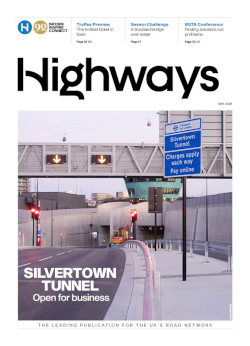Engineering and professional services consultancy WSP is working with Transport for West Midlands (TfWM) to design and support the delivery of an over 100km testbed facility for connected and autonomous vehicles in the West Midlands.
The project is part of a wider contract with TfWM worth more than £1.7million. WSP is now overseeing the preliminary and detailed design of the TfWM elements of the Midlands Future Mobility CAV Testbed.
TfWM said it will use the facility to trial new modes of transport, services and technologies, after the Government’s decision last year to name the West Midlands as the UK’s first Future Mobility Zone. Following the announcement, which highlighted the West Midlands’ position in the heart of the UK with strong transport links, the region is set to play a crucial role in reshaping the national and international transport and mobility landscape, as well as firmly establishing the UK’s presence in the development of connected and autonomous vehicles.
WSP will also assist TfWM in appointing a construction partner for the delivery and commissioning stages of the test facility.
Once complete, the facility will be available, through Midlands Future Mobility, for manufacturers of CAV vehicles and systems to trial Cooperative Intelligent Transport Systems (C-ITS) services – driving research and development and supporting TfWM as it pursues its Future Mobility Programme.
Shafiq Garda, project director for Intelligent Transport Services at WSP, said, ‘The West Midlands is at the heart of the UK’s transport network and is rightly placed to play a huge role in the future of transport. WSP is passionate about supporting the West Midlands further embrace innovation and develop new infrastructure that is ready for the future.’
‘The West Midlands has always been at the forefront of the UK car manufacturing industry and we look forward to working with TfWM in realising the economic and social benefits that new modes of transport offer, truly helping to rev the Midlands Engine.’
‘Applying the results from our feasibility study and moving onto the design phase, this testbed will pave the way for a rigorous and safe approach to testing connected and autonomous vehicles, driving innovation and the intelligent roll-out of these technologies in the years to come,’ added Garda.
WSP has also been appointed by TfWM to lead on the development phase of its Future Mobility 2022 project, launched to make a strategic case for wide adoption of Future Mobility Services to solve real-world transport challenges by exploiting cutting edge future technologies at a multi-modal level.





